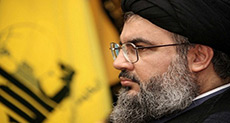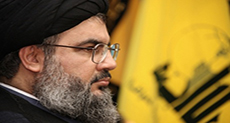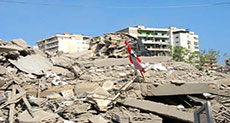U.S. Learns from "Israel"-Hizbullah War

Source: Al-Manar TV, 15-2-2008
'From you we benefit'. Senior Pentagon officials are using a classified Army study on the 2006 "Israeli" war against Hizbullah to retool the U.S. military's combat strategy for future wars.
"It's not just counterinsurgency," said Rickey Smith, of the Army Capabilities Integration Center-Forward Office. "This was a wake-up call to all of us as analysts." "It's still going to boil down to a human contest," Smith claimed. "But we don't want it to be a fair fight. We want to win with overwhelming force."
The study by the Center for Army Analysis, which provided an unclassified version to USA Today, stresses that guerrillas armed with high-tech equipment can fight a modern military force to a standstill.
"People think of an irregular force, that they might not be as competent as a regular army," said Col. Tom Slafkosky of the Center for Army Analysis. "In fact, they may be much more dangerous and competent because they're much more motivated to fight, and they will take the initiative."
But is the American army planning a visit to Lebanon soon?
"The main lesson for the Army from the "Israel"-Hizbullah conflict: Prepare for a fight more complex and deadly than the insurgencies in Iraq and Afghanistan", Slafkosky said. "Potential U.S. adversaries know about Hizbullah's success, too," Slafkosky assured. "They share this stuff all the time on the Internet."
"Israel", center director E.B. Vandiver said, "trained its troops for security and police operations, not full combat against a well-trained enemy". Such threats, Vandiver added, are "proliferating. They can only get bigger, badder and harder."
Retired Army major general Robert Scales called Hizbullah's tactics a revolution in warfare. "This is the first time an irregular force has been equipped with precision weapons," he said. "The "Israeli"s could have put 2,000 F-16s over Lebanon, and it would not have made a lick of difference", he added.
Hizbullah vowed more surprises in any new war to be launched against it; something that would probably leave US and "Israeli" military officials with more advanced lessons to learn from the resistance.
'From you we benefit'. Senior Pentagon officials are using a classified Army study on the 2006 "Israeli" war against Hizbullah to retool the U.S. military's combat strategy for future wars.
"It's not just counterinsurgency," said Rickey Smith, of the Army Capabilities Integration Center-Forward Office. "This was a wake-up call to all of us as analysts." "It's still going to boil down to a human contest," Smith claimed. "But we don't want it to be a fair fight. We want to win with overwhelming force."
The study by the Center for Army Analysis, which provided an unclassified version to USA Today, stresses that guerrillas armed with high-tech equipment can fight a modern military force to a standstill.
"People think of an irregular force, that they might not be as competent as a regular army," said Col. Tom Slafkosky of the Center for Army Analysis. "In fact, they may be much more dangerous and competent because they're much more motivated to fight, and they will take the initiative."
But is the American army planning a visit to Lebanon soon?
"The main lesson for the Army from the "Israel"-Hizbullah conflict: Prepare for a fight more complex and deadly than the insurgencies in Iraq and Afghanistan", Slafkosky said. "Potential U.S. adversaries know about Hizbullah's success, too," Slafkosky assured. "They share this stuff all the time on the Internet."
"Israel", center director E.B. Vandiver said, "trained its troops for security and police operations, not full combat against a well-trained enemy". Such threats, Vandiver added, are "proliferating. They can only get bigger, badder and harder."
Retired Army major general Robert Scales called Hizbullah's tactics a revolution in warfare. "This is the first time an irregular force has been equipped with precision weapons," he said. "The "Israeli"s could have put 2,000 F-16s over Lebanon, and it would not have made a lick of difference", he added.
Hizbullah vowed more surprises in any new war to be launched against it; something that would probably leave US and "Israeli" military officials with more advanced lessons to learn from the resistance.
- Related News




